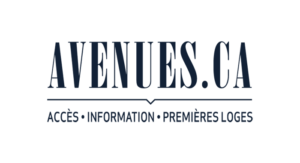Did you know ?
10 facts about credit cards
In Canada, nearly 60% of credit card holders are unaware of the interest rate and 40% are unable to pay off the balance every month. That’s cause for concern! Here are 10 things you should know about credit cards.
1.The grace period
This is the famous 21-day period where you enjoy your card without paying interest on your purchases. The credit card statement date (and due date) changes each month. For example, if the date is January 25, the due date will be February 15. But for a statement dated February 15, the due date could be March 8.
The best way to avoid late payments (and interest charges) is to pay at least 48 hours before the due date, excluding weekends.
If your financial institution is the card issuer, payment will be instant or on the same day. Use your institution’s payment alert service (usually free).
Even better: reset the account balance to zero when you receive the statement, even if it means using your personal line of credit or mortgage, whose rate is always lower than the card’s rate. You can repay this amount on your payday, with interest at the margin rate.
2.You only make the minimum payment?
That is going to cost you a lot. For example, if you buy a $1,000 TV and only pay the minimum required (2.5%) and the card rate is 19.50%, it will take you 14 years and 7 months to get your debt down to zero and the interest will have cost you $1443.99!
Tip: set up an automatic transfer to your credit card every payday, even if it means making an additional payment at the end of the month to bring the account to zero. To calculate your transfer amount, add up your annual expenses and divide by 26.
3. How much your credit card debt?
Want to know how much your credit card debt is costing you and how long it will take to pay it off? Use the Autorité des marchés financiers calculator. And avoid payment holidays, because interest continues to accrue.
4. What about that rare occasion when there’s an interest charge on your statement?
Phone the card issuer. If this is your first delay and you bring your account to zero each month, they will usually refund you. However, the delay will be recorded on your finances credit file. The first time doesn’t matter.
But if it happens more than twice a year, it will affect your credit rating. Borrowing or insuring yourself may then cost you more.
5. You have had a $5 balance on your card for five months.
This is the best way to damage your credit report. Pay it off right away! Also, if you have five credit cards, but you really only use one, it certainly affects your credit report. Take the scissors to the three newest ones (especially the department store cards). And make a $20 monthly purchase with the card that is not or rarely used.
6. You use credit card checks because it’s convenient.
Yes, but they are practically a scam. The interest accrues as soon as you cash them, just like an ATM withdrawal made with the card. Negotiate a line of credit or a personal loan if you need credit. And shred those checks without delay.
7. You use your card up to its limit each month, but you pay it off in full.
Bad for your credit report! Keep your total transactions below 30% of the limit. Beware of unexpected overruns: you have $60 left before you reach the limit, you buy $20 of gas, but the pump freezes $100. You exceed the limit and are charged a hefty overage fee. Raise your limit or curtail your lifestyle.
8. A merchant refuses to stop a monthly subscription with the card?
Ask the issuer to do so, otherwise cancel your card. Your financial institution can offer you another one… or go elsewhere!
9. Your card gives you cash back on your purchases.
Good for you! But if the issuer charges you an annual fee, your rebates are not so attractive. Worse still: the fee could exceed the rebates.
10. What about loyalty programs?
In fact, 82% of consumers choose their card based on its loyalty program, but 57% have no idea of their bonus point balance and 38% do not know their value.
First: do not accumulate them beyond a few months.
Second: the best way to select a card is to make a few comparisons:
Choose the card according to your priorities (travel, food, gas). Go for cash back cards. Avoid cards with annual fees.
Third: avoid promotional rates, it’s a catch, especially for balance transfers. And if you’re having trouble getting your monthly balance down to zero, forget the bonus points and get a low-rate card.





